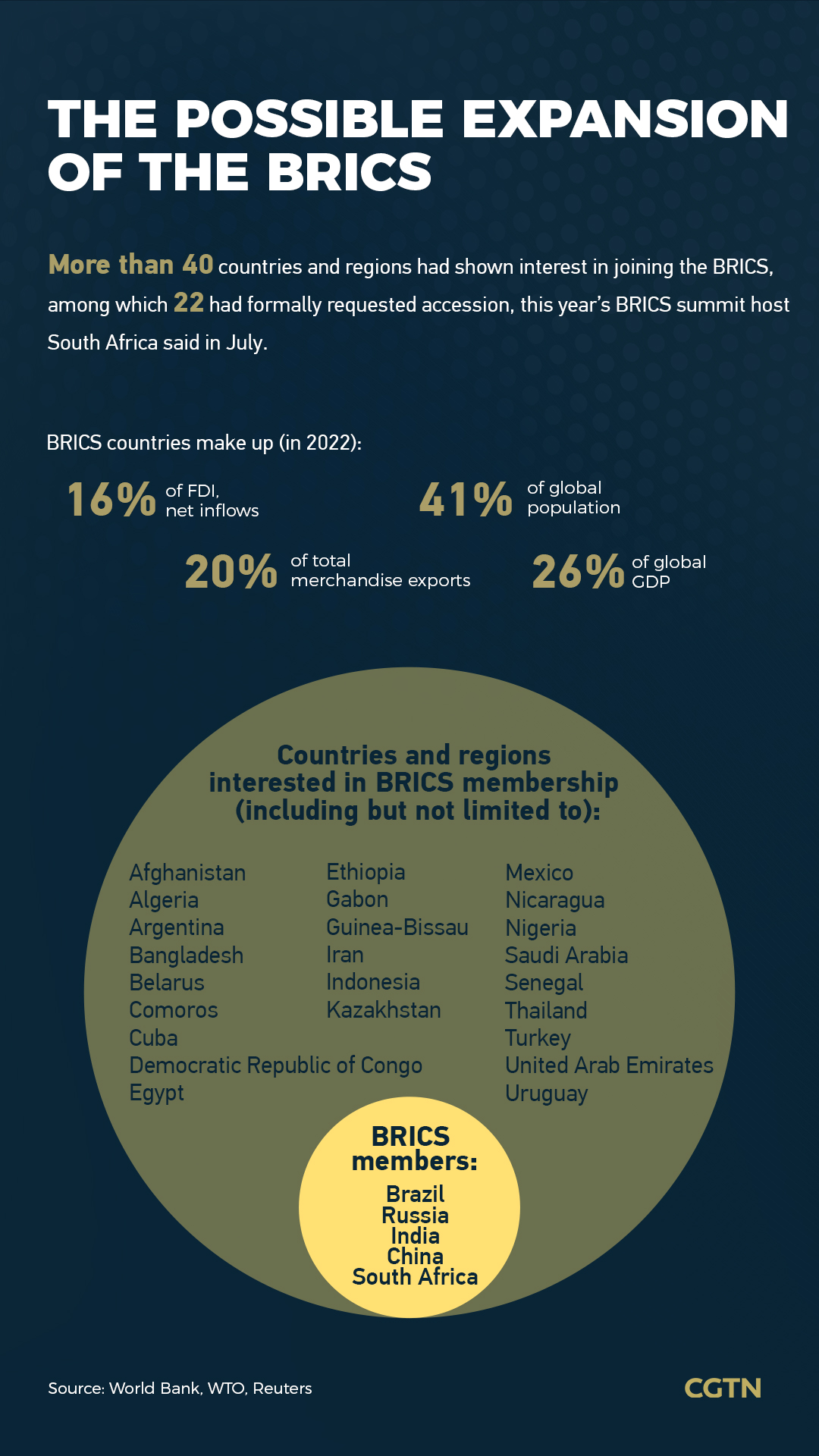The BRICS group of major emerging economies – Brazil, Russia, India, China and South Africa – will hold its 15th summit in Johannesburg August 22-24, with a possible expansion high on the agenda.
More than 20 countries have formally applied to join the group, South African President Cyril Ramaphosa said on Sunday, expressing support for the group's expansion. South Africa holds the BRICS rotating presidency in 2023.

The group was formally launched in 2009 with Brazil, Russia, India and China. South Africa officially joined the group in 2010, and it has so far been the only additional member admitted. The African country proposed a further expansion during its presidency in 2018. The leaders of the five countries agreed to expand the group's membership during the 14th BRICS Summit in Beijing last year.
BRICS represents 26 percent of the global GDP, 41 percent of the world's population, and 16 percent of the global FDI net inflows in 2022, according to the World Bank. It accounts for 20 percent of the world's total merchandise exports last year, WTO data showed.
The current five BRICS countries are also influential members of leading international organizations and agencies, including the UN, the G20, the World Bank and the IMF, with 14 percent of voting rights in the World Bank and 15 percent of quota share in the IMF.
For new entrants, being part of BRICS could expand their diplomatic influence and open up lucrative trade and investment opportunities. More than 40 countries have expressed interest in BRICS membership.
Saudi Arabia, the United Arab Emirates, Nigeria and other oil-producing countries have made applications, according to Mainichi Shimbun, a Japanese daily. Once approved, the BRICS members will cover over half of the world's oil and gas resources.
South Africa is the only African country in the group. Ramaphosa said over 30 African heads of state as well as others from the Global South will attend the summit. South Africa wants to build a partnership between BRICS and Africa to bolster trade and investment, he added.
BRICS members are seen as important trade partners and sources of foreign investment across Africa, according to Tim Zajontz, a research fellow at the Centre for International and Comparative Politics under Stellenbosch University, South Africa.
"The fact that President Ramaphosa has invited other African leaders to attend the Johannesburg summit shows that there is keen interest to increase the BRICS' footprint on the continent," Zajontz added.